President Trump’s initiative to restore law and order to the streets of the nation’s capital is a smart political move. All Americans consider Washington “our city,” and we want it safe. We can see on the nightly news that it is not, and we’re not happy about it. If Trump can turn that around, he will get well-deserved credit, not from the legacy media but from the public.
Trump and his party will reap a second major benefit, as well. If he can lessen the muggings, car jackings and armed robberies, if he can move the homeless off downtown streets, he will highlight the difference between his approach and the painful failures in Chicago, New York, Los Angles and other major cities, all of them governed by Democrats. That’s a huge political benefit, if he can secure it.
The president can take action in Washington because he has unique authority there, despite some laws granting the city “home rule” powers. Trump is taking full advantage of that unique authority, declaring a “crime emergency” in the nation’s capital.
What happens on the streets of Washington resonates across the country for several reasons. Americans focus on the nation’s capital, as we have been taught since elementary school. We travel there by the millions as tourists and consider it an important visit for our school-age children. And, of course, we see it on the news every night.
This prominence means crime in areas close to the White House and Capitol Building get lots of coverage, as we saw again recently when a DOGE staffer was pummeled by a gang of young thugs. Because the national media is pervasive in DC, street crime gets more coverage there than in any city besides New York. That means Americans know the streets of Washington are none too safe, and they are none too happy about it.
Of course, restoring public safety, if Trump can manage it, won’t get the same coverage as the rampant crime for two reasons. The first and most obvious is media bias. The legacy media never awards its glittering prizes to a president they loathe. The second is that violent crime is far more newsworthy than the dull regularity of safe streets. “Dog bites man” is a lot more newsworthy than “Man quietly walks dog.”
Still, restoring public safety in DC has a huge potential payoff for Trump and the Republicans. Every major American city is plagued with violent crime, and every one is governed by Democrats. Most are very “progressive,” as are their local judges and city councils. The result is that violent, repeat offenders get bail immediately, and those who are convicted typically receive only a slap on the wrist. Punishment is even softer if offenders are under 18, as many are. Gangs are well aware of that loophole and rely on younger members to commit crimes.
This passive treatment of violent crime has predictable effects, which have been especially visible in recent years. Since the George Floyd riots in 2020, urban crime has spread like a dark, bloody stain. Young, well-armed gangs are a special problem. The mystery is why progressives use the term “social justice” for lenient treatment of this crime, which imperils law-abiding victims. It’s not social justice for them.
It’s no mystery why Trump has seized this issue. Nor is it the first time. He did it in Los Angeles, which pitted him against Mayor Karen Bass and Governor Gavin Newsom. Smart move. Restoring order in DC is even smarter since the goal is to contrast the restoration of public safety there with its absence in Democratic-run cities across America.
Expect DC judges and local officials to try to stop him. Expect federal courts to question Trump’s authority and enjoin him if they can. Trump will relish the fight since it illustrates the Democrats’ reflexive opposition to his policies and their “soft on crime” stance.
They will also respond that “things are getting better,” that violent crime is down in some cities, including Washington. That’s true, but the numbers are still higher than in 2019 and the response seems to justify crime levels that are still terrifyingly high. That’s not a winning formula.
Still, Trump faces two political risks in pursuing this policy. The first is practical. Will his policies succeed? That poses a risk only if the courts don’t obstruct him. If they do, he will lay the blame at their door, and rightly so. The other risk is public alarm at the use of federal agencies and even National Guard troops on American streets. The public is understandably wary of the militarization and federalization of law enforcement, which has always been a local responsibility.
Despite the risks, Trump’s emphasis on restoring order to Washington is a winning political strategy. It worked with border security, and it is likely to work in the nation’s capital. If it does, the president and his party can draw a sharp contrast between Republican law enforcement and Democratic failures across America.
Trump’s shrewd move in DC will resonate across the US
Every major American city is plagued with violent crime, and every one is governed by Democrats
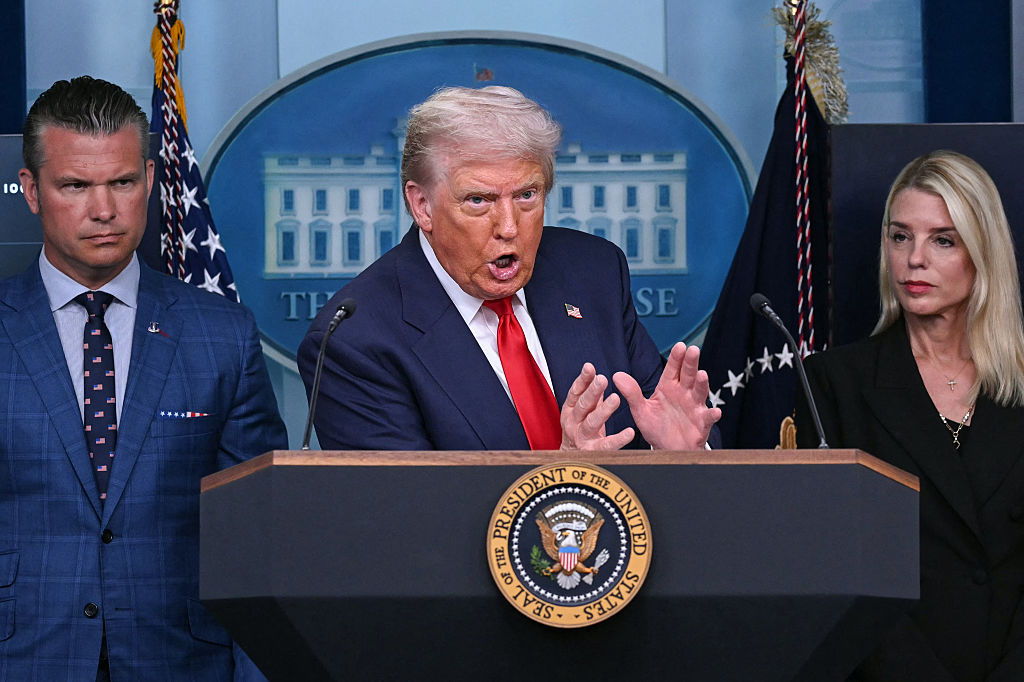
Donald Trump, alongside Secretary of Defense Pete Hegseth and Attorney General Pam Bondi, speaks during a news conference to discuss crime in Washington, DC. (Getty)










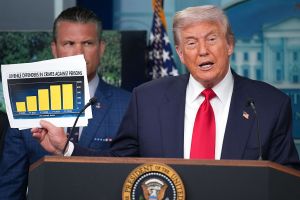
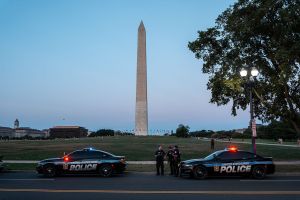
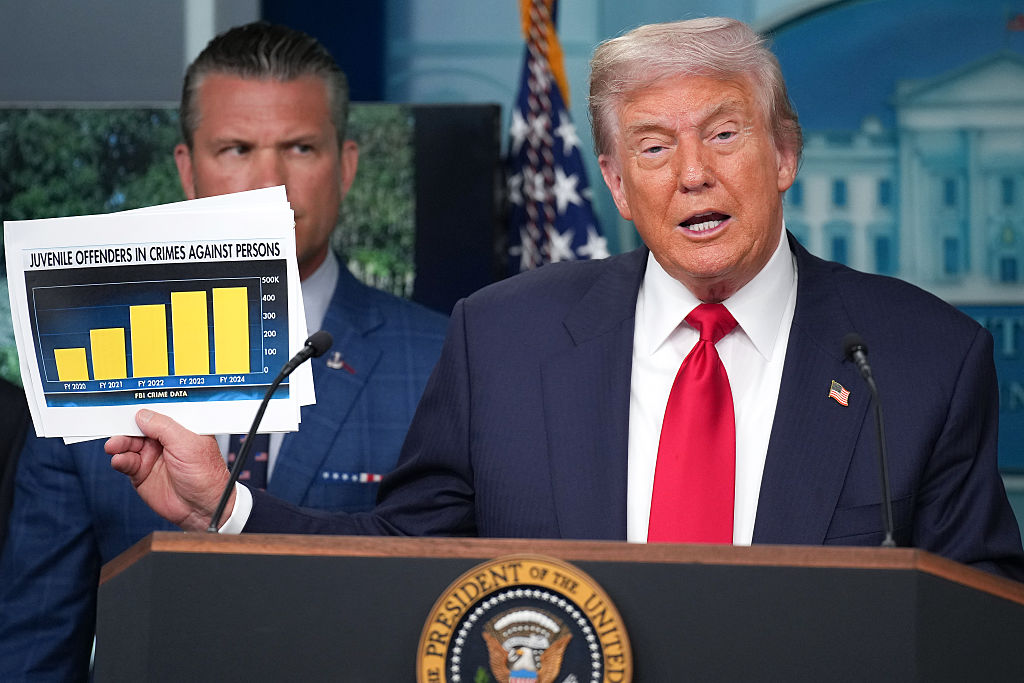
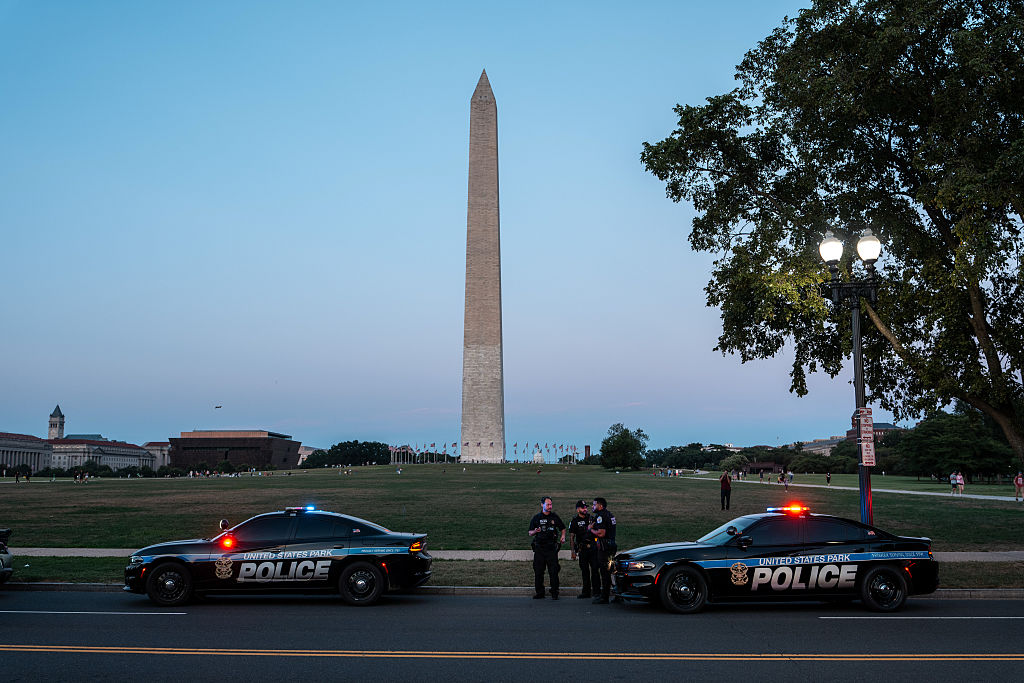

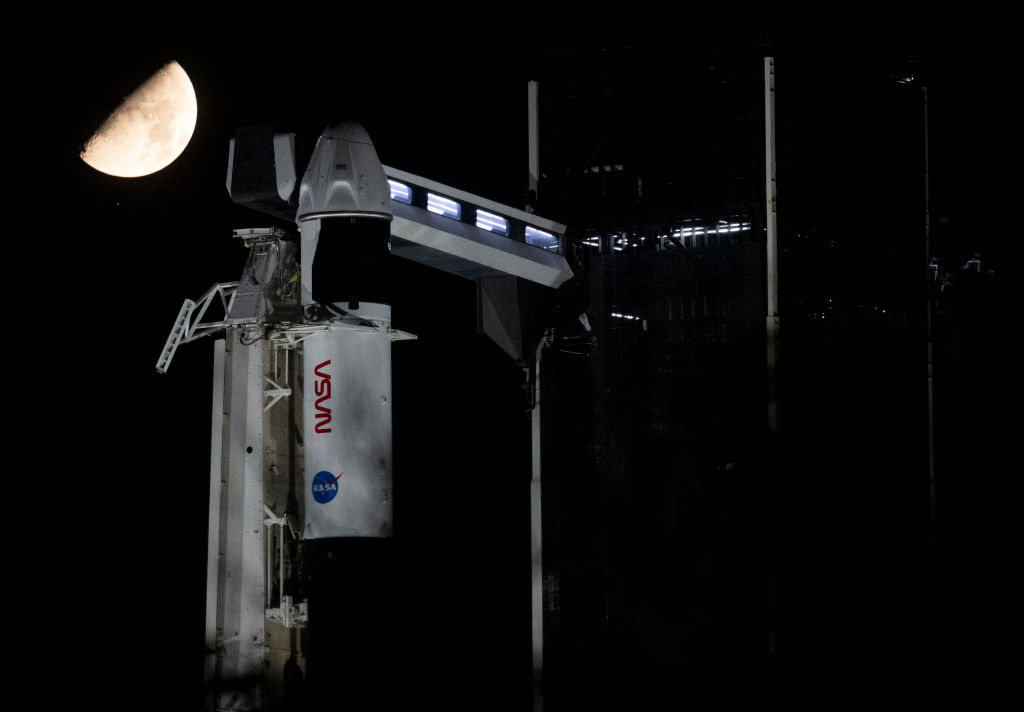
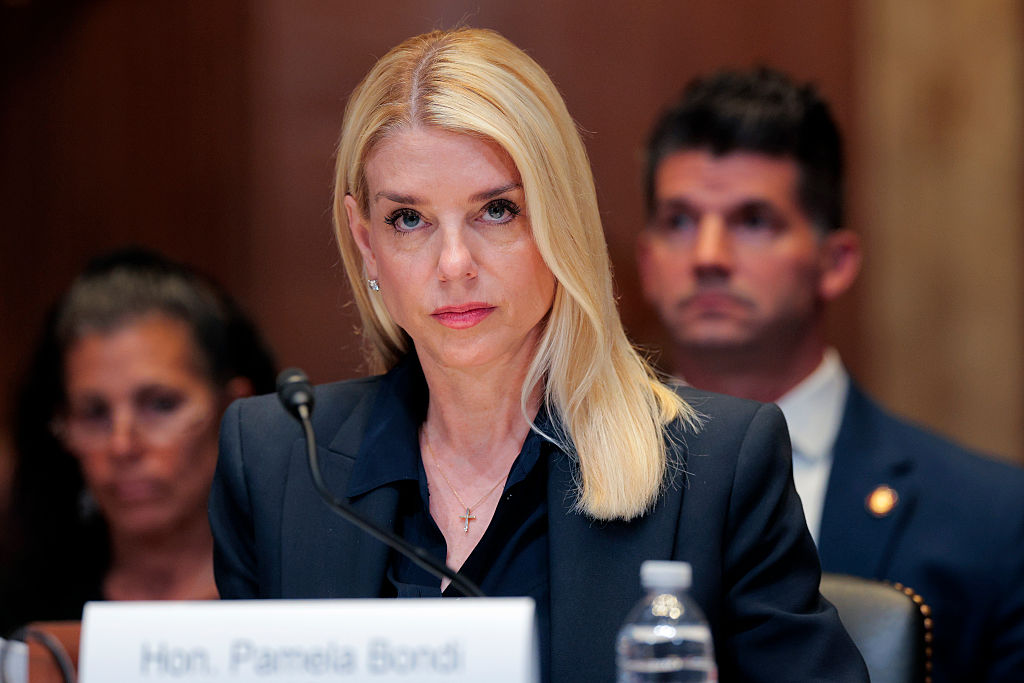
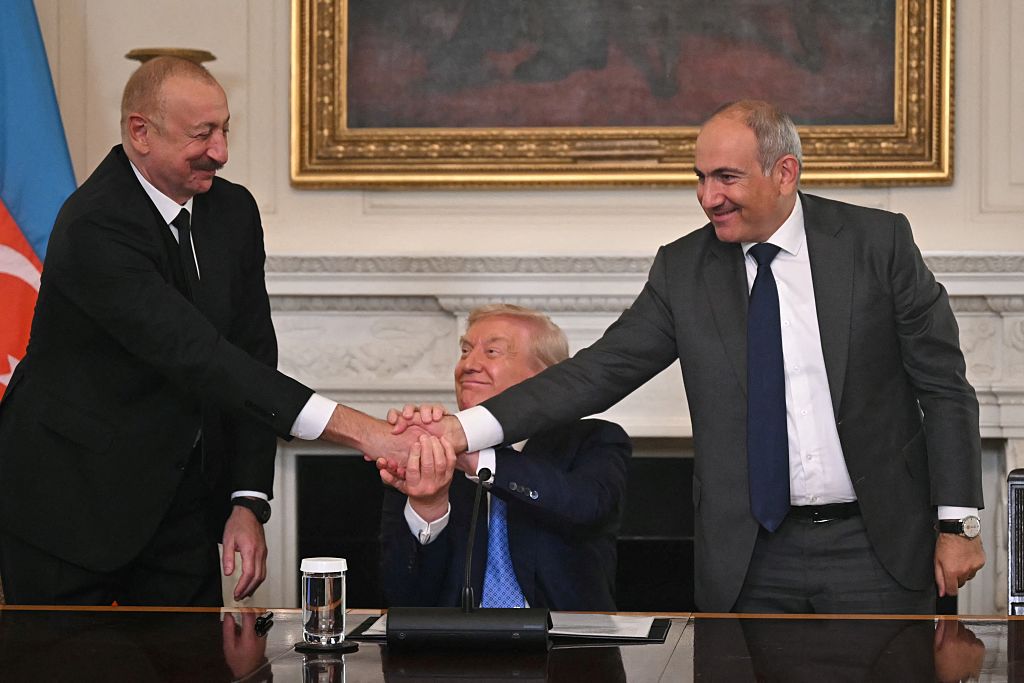







Leave a Reply